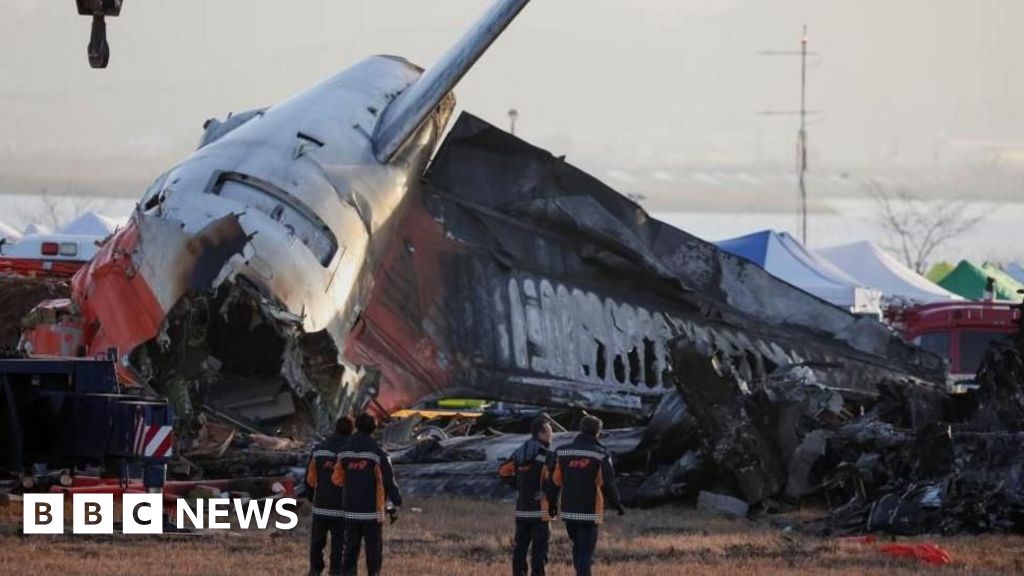ARTICLE AD BOX
image sourceReuters
image captionThe ISS pictured from a Soyuz spacecraft last yearAlarms have gone off on board the International Space Station after the crew reported smoke and the smell of burning plastic.
The incident centred on the Russian-built Zvezda module which provides living quarters, Russian media report.
The ageing space station has suffered a number of failures over the years and a Russian official recently warned of outdated hardware and failing systems.
These include air leaks, misfiring engines and cracks.
Russia's space agency, Roscosmos, tweeted the smoke was detected during recharging of the station's batteries and that the crew had returned to "regular training".
The agency said the air quality was back to normal after a "hazardous material removal system" was activated.
The US space agency, Nasa, said a spacewalk planned for later on Thursday would still go ahead, according to Russia's Ria Novosti news outlet.
Two Russian cosmonauts are set to carry out work on the recently delivered Nauka science module.
Russian official Vladimir Solovyov told state media on 1 September that the ISS could suffer irreparable failures due to outdated equipment and hardware.
At least 80 percent of in-flight systems on the Russian segment had passed their expiry date, Mr Solovyov, chief engineer at space company Energia, told state media. Energia is the lead developer of Russia's ISS modules.
He also said small cracks had been discovered on Russia's Zarya cargo section and they could worsen over time.
The ISS was built in 1998 as part of a joint project between Russia, the US, Canada, Japan and several European countries and was originally designed for a 15-year lifespan.
In April, Russia's Deputy Prime Minister Yuri Borisov told state TV that aging metal on the station could "lead to irreversible consequences - to catastrophe. We mustn't let that happen".
Roscosmos said last year that structural fatigue meant the ISS would not be capable of operating beyond 2030.
In July, a malfunction caused the jet thrusters on the Nauka module to fire without warning, destabilising the ISS.
You might also be interested in:

 3 years ago
48
3 years ago
48








 English (US) ·
English (US) ·